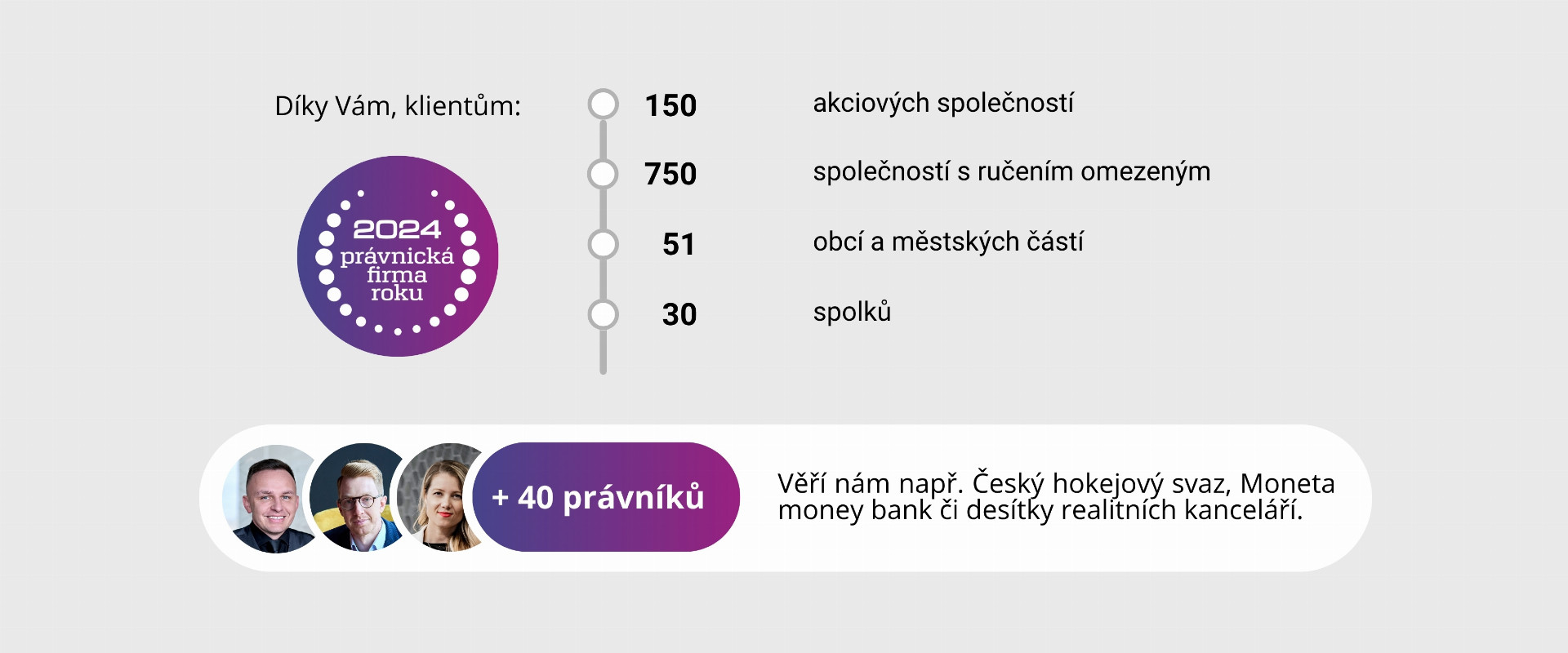
Navigating the Maze: The Legal Status of HHC Production in the Czech Republic for Foreign Businesses
This article provides direct answers for foreign companies and investors asking how to get a permit to produce or sell HHC products in the Czech Republic. Following the landmark Psychomodulatory Substances Act, effective January 1, 2025, the legal landscape has been completely reshaped. We will explain exactly where HHC stands, what the new law means for your business, and how to navigate the significant legal risks to make informed decisions.
Author of the article: ARROWS (JUDr. Jakub Dohnal, Ph.D., LL.M., office@arws.cz, +420 245 007 740)

The 2025 Legal Shift: Understanding the Czech Republic's New Three-Tier System for Psychoactive Substances
To comprehend the current legal status of Hexahydrocannabinol (HHC) in the Czech Republic, it is essential for any foreign business or investor to first understand the revolutionary legal framework that took effect on January 1, 2025. Through a significant amendment to the Act on Addictive Substances (Act No. 167/1998 Coll.), the country has abandoned a simple banned-versus-legal model.
Instead, it has implemented a pioneering three-category system for psychoactive substances, positioning the Czech Republic as a legislative innovator within the European Union. This new structure was born out of necessity, driven by the failure of the previous system to manage the "grey market" sale of substances like HHC, which were often sold as "collector's items" and led to serious public health concerns, including the hospitalization of minors.
The government's response was not a simple prohibition, which many experts and political factions argued would merely shift sales to an unregulated black market. Instead, the new law creates a highly controlled, regulated market for certain substances while establishing a clear process for assessing new ones. The three categories are:
- Addictive Substances: This category contains the traditional list of internationally recognized narcotics and psychotropic substances, such as heroin and cocaine. Any handling of these substances without a specific, narrow permit (e.g., for specified medical or scientific use) constitutes a serious criminal offense under the Czech Criminal Code.
- Psychomodulatory Substances (psychomodulační látky): This is a completely new legal category designed for substances that, after assessment, are deemed to pose an acceptable level of risk to public health. Substances on this list, which currently includes kratom and cannabis with a THC content of up to 1%, can be legally manufactured, distributed, and sold, but only under extremely strict conditions. This regulated market is designed to ensure product quality, prevent access by minors, and maintain government oversight.
- Listed Psychoactive Substances (zařazené psychoaktivní látky): This third category functions as a critical "waiting list" or temporary holding classification for new or unassessed substances. When a new substance appears on the market, it can be placed on this list, which effectively prohibits its commercial sale and distribution. The substance then undergoes a scientific risk assessment for a period of up to two years to determine its future classification.
For foreign investors, this new framework signals a market that is both progressive in its thinking and highly bureaucratic in its execution. The creation of these new categories required notification and review by the European Commission, a process that can introduce delays and add a layer of external political risk to any market-entry strategy. This is not a simple regulatory environment; it is a dynamic legal space that requires constant monitoring and expert local guidance.
HHC's Current Status: A Clear "No" to Commercial Production and Sales
The most direct answer to the question of how a business can obtain a permit for the commercial production or sale of HHC products in the Czech Republic is simple: it cannot. Under the new legislation, HHC is not classified as a regulated psychomodulatory substance. Instead, it has been explicitly placed on the restrictive third list.
As of early 2025, Government Regulation No. 11/2025 Sb. officially classifies HHC and its common derivatives (such as HHC-O and THCP) as Listed Psychoactive Substances (zařazené psychoaktivní látky). This classification carries significant legal weight. It means that any form of commercial handling—including manufacturing, importing, exporting, distributing, or selling HHC products—is prohibited.
The only exception to this comprehensive ban is for scientific and research purposes, which requires a special permit granted by the Czech Ministry of Health. This is a very narrow, non-commercial carve-out intended for accredited research institutions, not for commercial enterprises.
This new status under the Psychomodulatory Substances Act continues the prohibition that was established in March 2024, when HHC was temporarily added to the list of banned addictive psychotropic substances in response to a public health crisis. The current classification uses a different legal mechanism but achieves the same outcome: a complete ban on the commercial market.
The government's decision to place HHC on this "assessment list" rather than the regulated sales list reflects a "safety first" approach. This was a direct consequence of the widespread media attention and political pressure following numerous incidents of children and adolescents being hospitalized after consuming HHC-infused edibles, which were easily accessible in vending machines and shops.
This decision represents a political and administrative compromise. It maintains the ban demanded by public health advocates and concerned parents, while keeping the door theoretically open for future regulation, should the substance be deemed safe after a thorough scientific review. This demonstrates that regulatory decisions in the Czech Republic are heavily influenced by the prevailing social and political context, making deep local knowledge an indispensable asset for any foreign business.
The Path Forward: Could HHC Be Sold Legally in the Future?
While HHC is currently off-limits for commercial activity, the Psychomodulatory Substances Act does provide a theoretical pathway for it to become a regulated and legally sold substance in the future. However, this path is long, fraught with uncertainty, and now faces a formidable international legal barrier that may prove insurmountable.
The domestic pathway is clear: substances on the zařazené psychoaktivní látky list are subject to a risk assessment period that can last up to two years. During this time, scientific bodies will evaluate the substance's health and societal risks. Following this review, the Czech government would decide one of three outcomes:
- Move the substance to the regulated psychomodulatory list, allowing for licensed sales.
- Move the substance to the addictive substances list, making the ban permanent.
- Extend the assessment period if more research is needed.
However, this domestic process has been profoundly complicated by a recent international development. In early 2025, the UN Commission on Narcotic Drugs officially added HHC to the list of globally controlled substances under the 1971 Convention. As a signatory to this international treaty, the Czech Republic is obligated to enforce this global ban.
According to the Czech Ministry of Health, this UN decision effectively overrides the domestic assessment path. The Ministry's official position is that the Czech Republic has no choice but to comply with its international obligations and maintain a prohibition on HHC, restricting it to scientific use only.
While some legal experts and policy advocates argue that the Czech Republic could, in theory, file a formal objection or reservation to the UN's decision and proceed with its own national regulation, the government has shown no inclination to take such a confrontational stance.
This creates a critical conflict between the nation's progressive legislative ambitions and its binding international commitments. The future of HHC in the Czech Republic is no longer just a domestic policy question to be decided in Prague; it is now intrinsically linked to decisions made in Vienna and the broader framework of global drug control policy.
For any potential investor, this is the most significant strategic factor. A purely domestic legal analysis is dangerously incomplete. It requires a nuanced understanding of how local, EU, and international laws intersect and conflict—a core competency for firms with a robust international practice.
Contact our experts:
Navigating the Current Prohibitions on HHC
For any business, including foreign entities, that may have existing stock or is contemplating any activity related to HHC in the Czech Republic, understanding the immediate risks is paramount. The current classification of HHC as a zařazené psychoaktivní látky means that unauthorized handling carries severe penalties. The following table outlines the primary risks and demonstrates how expert legal support is essential for mitigation.
|
Legal Risk & Potential Issues |
How ARROWS Helps |
|
Criminal liability for illicit manufacturing, import, or distribution under §283 of the Criminal Code, with potential prison sentences and severe financial penalties. |
Providing urgent legal opinions on operational compliance to prevent criminal violations and ensure all activities are lawful under the new framework. |
|
Seizure of all HHC-related goods, raw materials, and manufacturing equipment by the Police of the Czech Republic or the Customs Administration during inspections. |
Representing clients in proceedings before public authorities to challenge seizures and seek the return of any assets that may have been unlawfully confiscated. |
|
Substantial financial penalties for administrative offenses, which can reach up to CZK 15,000 for individuals and significantly higher sums for corporate entities. |
Drafting and implementing robust internal company policies and compliance programs to prevent any breaches that could lead to fines or other sanctions. |
|
Severe reputational damage to the parent company and its global brand, impacting investor confidence, banking relationships, and market standing in other jurisdictions. |
Offering discreet legal consultations to senior management to navigate sensitive regulatory issues and manage public relations from a legally sound position. |
|
Complications with cross-border shipments being blocked, investigated, and seized by customs authorities, leading to supply chain disruptions and financial losses. |
Leveraging the ARROWS International network to manage cross-jurisdictional shipping and customs issues, ensuring compliance with regulations in both origin and destination countries. |
|
Potential revocation of a company's general business license (živnostenské oprávnění) for engaging in activities deemed illegal, which could halt all Czech operations. |
Conducting comprehensive legal due diligence on all planned business activities to identify and mitigate regulatory risks before operations commence or capital is deployed. |
|
Personal criminal and financial liability for company directors and managers who are found to have knowingly approved or overseen illegal operations. |
Providing certified professional training for management and key employees on their specific legal duties and responsibilities under the new Czech laws. |
The Future Framework: What a Regulated Market Would Look Like
Hypothetically, should HHC overcome the significant international hurdles and be moved to the regulated psychomodulační látky list, it is vital for businesses to understand that this would not signal a return to the loosely controlled "grey market" of the past. The new regulated framework is designed to be strict, expensive, and highly controlled. By examining the rules now applied to kratom and low-THC cannabis, we can construct a clear picture of what a future regulated HHC market would entail.
Licensing and Fees: Market entry would begin with a demanding licensing process. A permit (povolení) from the Ministry of Health would be mandatory for any manufacturing, distribution, or sales activity. The administrative fee for a manufacturing or distribution license is set at CZK 200,000.
Furthermore, a separate permit, with a fee of CZK 20,000, would be required for each individual physical retail location and each e-shop, making expansion a costly endeavor.
Sales Channels and Restrictions: Sales would be heavily restricted to specialized stores with strict access control to prohibit entry by minors. The law explicitly forbids sales through vending machines, which were a primary channel for distribution to young people in the past.
Online Sales: While e-commerce is permitted, it is tightly regulated. An online shop can only be operated by a business that also has a licensed physical store. Crucially, the law mandates a reliable, two-step age-verification system: once at the point of online purchase and again upon delivery of the goods.
Product, Packaging, and Testing: To de-market the products, especially to younger audiences, the regulations are stringent. Products cannot be packaged in a way that imitates sweets, toys, or other items appealing to children. All packaging must contain clear, standardized labeling with information on composition, concentration of active substances, and recommended dosage.
Before any product can be placed on the market, it must undergo laboratory testing in an accredited facility to certify its contents and purity.
Advertising and Export: A near-total ban on advertising and public promotion is in effect, severely limiting marketing opportunities.1 Furthermore, cross-border distance selling to consumers in other countries is prohibited, and commercial export is only possible under a separate, specific licensing regime, effectively isolating the Czech market.
This high-cost, high-compliance model is deliberately designed to prioritize public health over aggressive commercial expansion. The significant financial and administrative barriers to entry inherently favor larger, well-capitalized companies that can afford the robust legal and compliance infrastructure necessary to operate.
Preparing for a Potential Future Regulated Market
For businesses with a long-term strategic interest in the Czech market, preparing for a potential (though uncertain) future regulated environment is a prudent exercise. Success will depend on anticipating and mitigating the unique business and compliance risks of this new framework. This table outlines key challenges and highlights how proactive legal planning can provide a competitive advantage.
|
Legal Risk & Potential Issues |
How ARROWS Helps |
|
Rejection of the license application by the Ministry of Health due to incomplete or incorrect documentation, resulting in costly delays and loss of first-mover advantage. |
Managing the entire licensing application process, from preparing all necessary documentation to communicating with regulatory authorities, to ensure a smooth and efficient procedure. |
|
Failure to meet stringent product testing and certification standards mandated by law, leading to product recalls, financial losses, and an inability to place goods on the market. |
Connecting clients with accredited Czech and EU laboratories and drafting the necessary compliance documentation, including internal quality control policies and procedures. |
|
Receiving substantial fines for non-compliant advertising, packaging, or labelling that is deemed to inadvertently appeal to minors or makes unapproved health claims. |
Providing a full legal review of all marketing materials, product packaging, and labels to ensure 100% compliance with the strict regulations before they are launched. |
|
Entering into unfavorable or non-compliant commercial contracts with suppliers, distributors, or landlords for specialized store locations. |
Drafting and reviewing robust commercial contracts that are specifically tailored to the unique risks and regulations of the psychomodulatory substances market. |
|
Corporate liability for accidental sales to minors due to failures in the age-verification process, which could lead to severe fines and even license revocation. |
Providing certified professional training for all sales and management staff on legal sales protocols, compliant age verification technologies, and mandatory record-keeping requirements. |
|
Navigating complex new tax implications, including the expected introduction of a new excise duty on psychomodulatory products, which will impact pricing and profitability.8 |
Offering integrated legal and tax advisory services to structure operations in the most tax-efficient manner while ensuring full compliance with all new and existing tax levies. |
|
Engaging in disputes with municipal authorities, who are empowered by the law to use local ordinances to impose further restrictions on the location or operation of specialized stores. |
Representing clients in negotiations and administrative proceedings with local government bodies to defend their right to operate and challenge unreasonable restrictions. |
ARROWS: Your Strategic Partner for Cross-Border Regulatory Challenges
The legal situation for HHC in the Czech Republic is a complex, moving target, shaped by domestic policy shifts, public health pressures, and overriding international law. For a foreign company, attempting to navigate this environment without expert, locally-attuned legal guidance is a significant business risk that can lead to financial loss and reputational harm.
ARROWS has over 15 years of experience in the Czech market, providing legal and tax counsel to a diverse portfolio of clients, including over 150 joint-stock companies and 250 limited liability companies. Our team of more than 60 advisors combines deep knowledge of Czech law with a practical, business-oriented understanding of how it differs from other jurisdictions—an essential perspective for our foreign clients.
The HHC issue is a prime example of a cross-jurisdictional challenge where a purely domestic analysis is insufficient. Through the ARROWS International network, which we have built over the last decade, we provide seamless legal solutions in over 90 countries. This global reach, combined with our local expertise, makes us uniquely equipped to handle the complex interplay of Czech, EU, and international regulations. Our track record includes managing complex international acquisitions, cross-border restructuring, and regulatory compliance for major multinational corporations.
The path to a potential regulated HHC market is blocked by significant legal and political obstacles. Don't let your investment or strategic planning be jeopardized by a misunderstanding of this intricate legal landscape. ARROWS regularly advises clients on navigating the most challenging regulatory frameworks in the Czech Republic and abroad. We can provide you with a clear legal opinion on your current standing, help you prepare for future possibilities by drafting necessary documentation and internal policies, and represent you before all relevant Czech and EU authorities.
Contact us today for a consultation. Let our team of experts help you understand the real risks and potential opportunities in the Czech market and ensure your business is built on a solid and compliant legal foundation.
Don't want to deal with this problem yourself? More than 2,000 clients trust us, and we have been named Law Firm of the Year 2024. Take a look HERE at our references.

